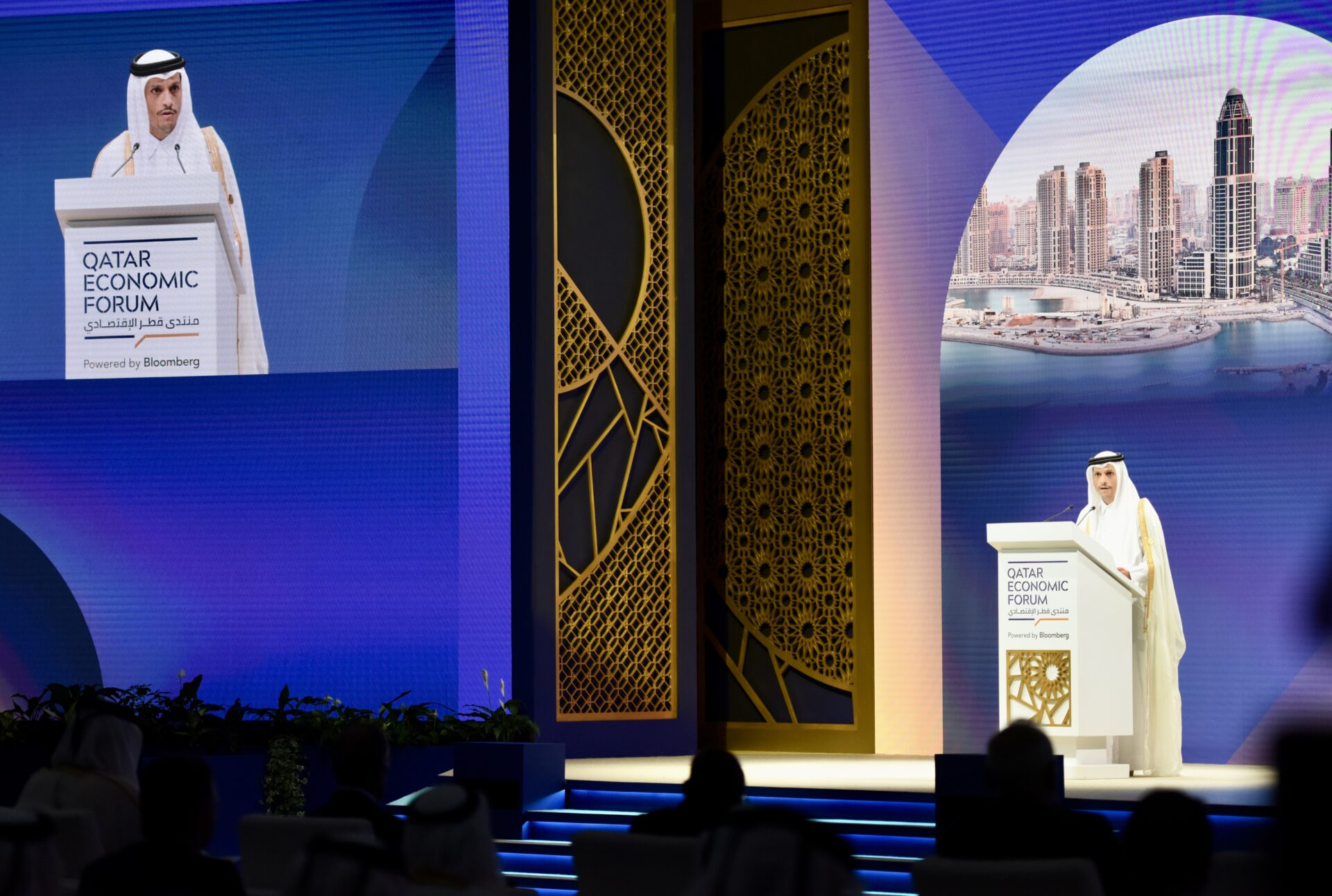Friends again, Qatar and Saudi Arabia warn over prospects for higher energy prices
Gathering at Qatar Economic Forum, oil and gas producers urge more flexible goals in international effort to reduce carbon emissions

Mohamad Dabbous/Anadolu Agency via Getty Images
Minister of Foreign Affairs of Qatar Mohammed bin Abdulrahman speaks at Qatar Economic Forum
Putting aside past disputes, the energy ministers of Qatar and Saudi Arabia came together to warn about the likelihood of higher natural gas prices this year and cuts in oil supply, arguing that global targets for shifting away from...










